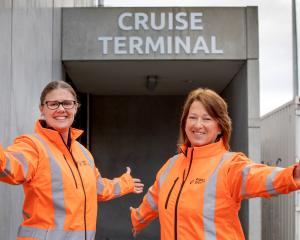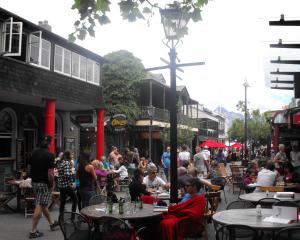Andrew Penniket, the Wanaka-based Otago Conservation Board member who first called for a national ban on campervans, said the Government needed to show some leadership on the issue and promote better travel options for tourists.
"The debate seems to have shifted to focus on freedom campers.
"In my opinion, they're only a small part of the problem," he said.
Rental campervans were a "blight on the landscape", produced "tonnes of carbon", and the bulk of any money associated with the industry went overseas, Mr Penniket said.
University of Otago marketing lecturer David Holdsworth, a conservation board colleague of Mr Penniket, said he spent the last week trying to find research results on the tourism benefits of campervan-using travellers.
"There is virtually no academic research that has been done on the economic or environmental impacts of rental campervan tourists," he said.
Mr Holdsworth has previously been involved with a New Zealand Transport Authority study, which focused on how safety improvements could be made for tourists driving campervans on the country's roads.
"We basically used a model then, where tourists picked up their vans, filled up at petrol stations, shopped at the supermarket and then just went driving.
"After that, we had no idea what they might spend," he said.
New Zealand Tourism Industry Association spokeswoman Ann-Marie Johnson said she knew of no research specifically focused on campervan usage by tourists.
A 2007 study by the Holiday Park Association of New Zealand said holiday-park visitors contributed about $623 million to New Zealand's economy, split between between domestic visitors ($340 million) and international tourists ($284 million).
The HPANZ study did not specify the different types of park user and also did not include freedom campers, who might not use holiday parks.
New Zealand Motor Caravan Association president Dick Waters said the association's 40,000 members owned about 19,000 motorhomes around the country and contributed $90 million to the economy.
The figures came from an in-house association survey, updated annually, detailing the days and nights members spent on the road and their average daily spend, he said.
Overseas companies benefited the most from overseas campervan travellers, Mr Penniket said.
The main rental companies were not based in New Zealand, while most of what travellers spent at the petrol pump went to international oil companies, he said.
"Not only are these travellers soiling our environment themselves, their vehicles are further befouling our atmosphere," he said.
New Zealand's motorhome owners did not deserve to be "unfairly" lumped in with the overseas users of rental campervan companies, he said.
"I've modified my views since last week's [OCB] meeting.
"My comments weren't directed at them and I've realised it's somewhat unpractical to ban all campervans," Mr Penniket said.
An alternative would be to stop importing new campervans and for the Government to call a halt to the registration of new vehicles, he said.
No support from PM for ban call
Prime Minister John Key does not support calls for a national ban of campervans.
A spokesman for the Prime Minister told the Otago Daily Times yesterday thousands of tourists used campervans as their primary form of accommodation and transport when they visited New Zealand, "pouring millions of dollars" into the national economy.
"Campervans are vital to the tourism industry.
"They provide a niche product for visitors who are looking for a specific holiday experience," the spokesman said.
Campervans provided a flow of visitors and tourism dollars into regions that would otherwise be expensive, or difficult, to access, he said.
The Otago Conservation Board has called for a national ban of campervans and has resolved to push the Government to implement a national strategy to address freedom camping.
New Zealanders had an expectation that campervan travellers would clean up after themselves, the spokesman said.
"We believe that better education, not more regulation, is the key to this."
The spokesman said Mr Key, the Minister of Tourism, expected campervan companies to keep their vehicles maintained to acceptable standards.
There were no plans for further regulation of the industry, despite predictions that thousands of visitors for the 2011 Rugby World Cup will hire campervans to follow the tournament.





